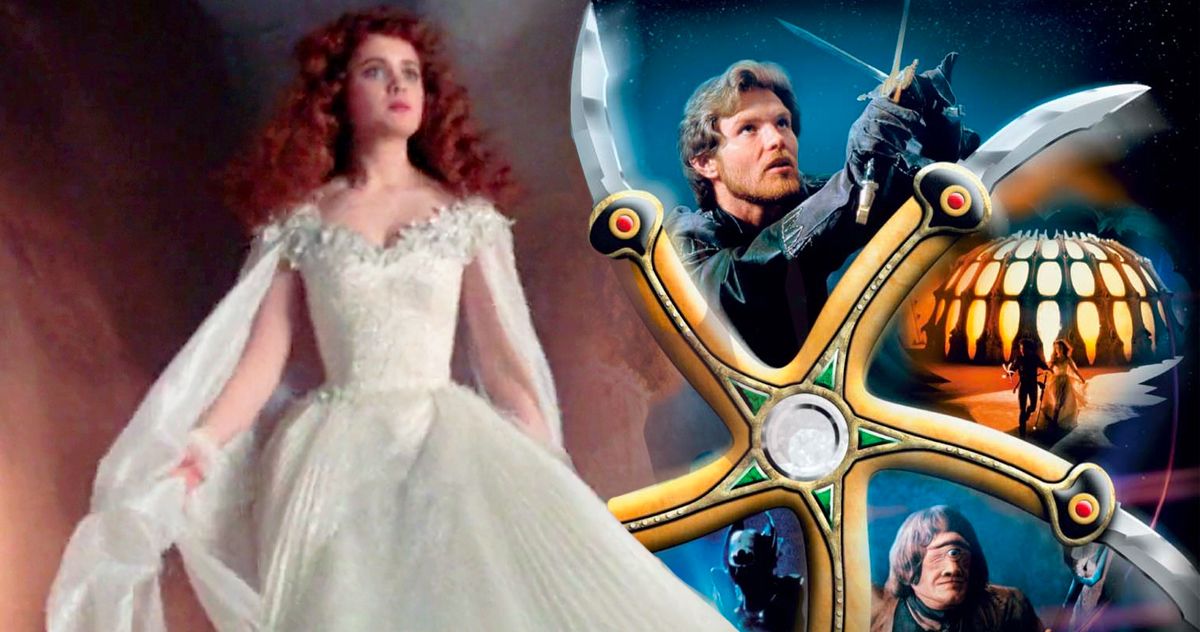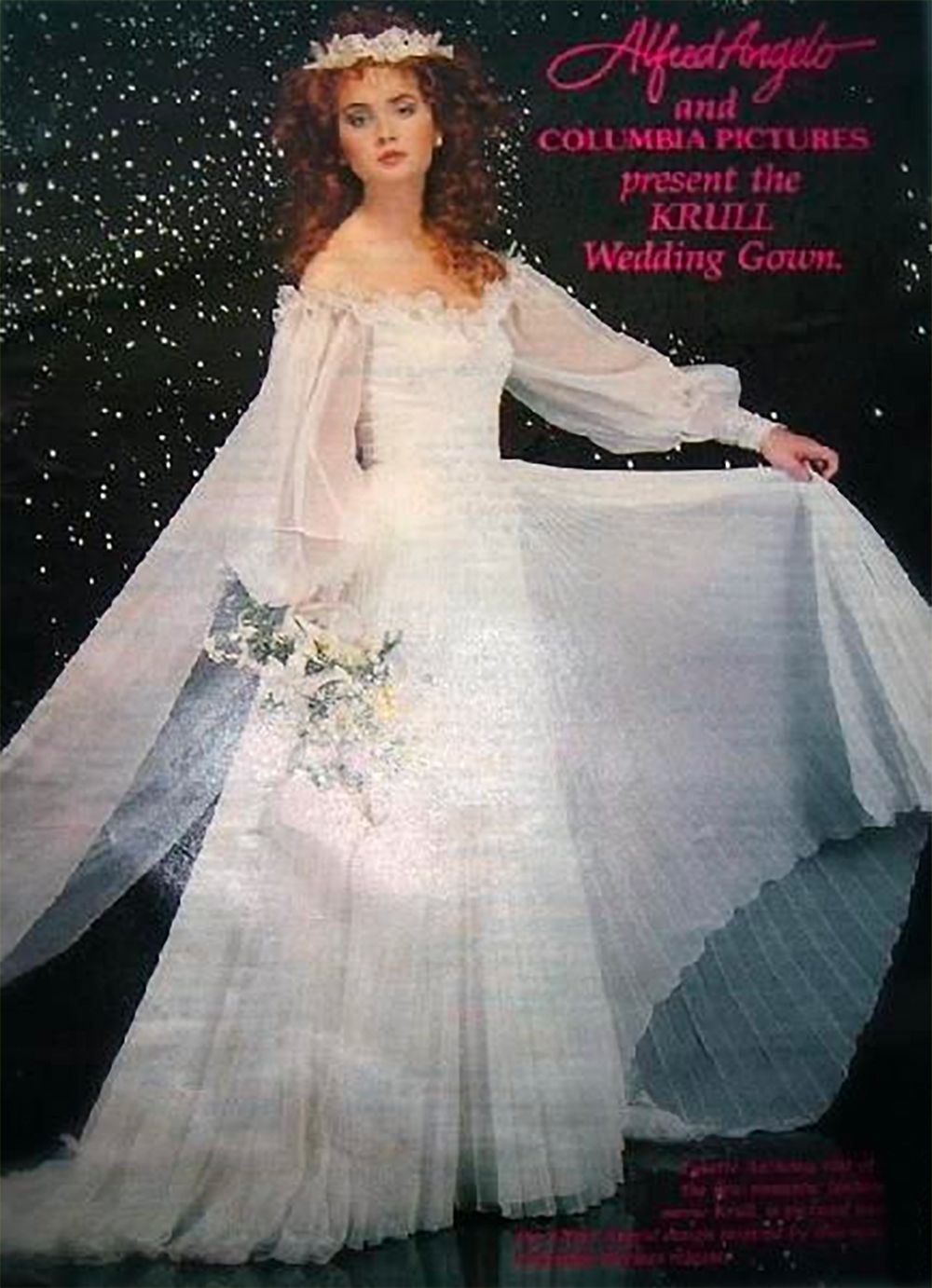Most of us, if and when we think about the movie Krull, remember this film as a fun piece of wannabe, sci-fi epicness. This story of a prince (Ken Marshall) trying to save his fair maiden (Lysette Anthony) from a horde of alien invaders, is very much a movie of its time. With effects that could be replicated on an iPhone and a cool five-edged device called the Glaive to help them, Krull was apparently made for about $30 million dollars but it faded from the box office only grossing a little over half that. For many years this film took its place as a memorable piece of 80s pop culture.
Until now.
In today's age revisionist media, where everything that's true can be dispelled by an equal amount of information that also claims that mantle, the shelf-life of any story or article's believability is universally limited. However, Krull has such an odd release history that it will make you wonder how it's been a secret for so long. Especially when you look at the history behind other iconic 80s Sci-Fi fantasy movies.
Movies often do odd things to promote themselves. For Krull, Columbia Pictures, the studio responsible for recouping its budget, thought that it would be a good idea if 12 couples got married to promote the film. According to Tim Kirk, of Moving Arts Film Journal, these marriages (that really happened!) were going to be used to promote Krull because a similar scene happens in the film. However, once Krull presented itself as DOA at the box office this "promotion" never saw the light of day.
The event happened back in 1983. 12 couples were married in the name of Krull. What's interesting is that these couples, who may or may not be divorced here, almost 40 years later, hadn't seen the movie, as it wasn't released until way after the promotion and marriages happened. Columbia Pictures was hoping to ride on the coattails of Star Wars, with Return of the Jedi being released that same year. Tim Kirk had this to say about the wedding debacle itself.
"On a hot summer day in 1983, a dozen couples gathered in a soundstage in Burbank to take part in a group wedding. One after another, they walked past a pair of futuristic soldiers in fanciful armor, down a red carpet flanked by strangers in folding chairs, and up to an altar made of faux stone. These were the lucky winners of a national contest sponsored by Columbia Pictures. They had penned the winning statements describing, as the studio's press release states, "why their 'Fantasy Come True' would be to have a 'Krull' wedding in Hollywood."
Interestingly, this wasn't the only oddball promotional idea behind Krull. The 12 weddings were just the wackiest one. There is a barely remembered Atari game based on the movie. Then there was a donut in the shape of the Glaive which got the nickname 'The Kruller', a play on the word Cruller. And there was a creepy, black van touring your city meant to further drive up the box office receipts. Why a black van? According to Kirk, the idea was that this image would remind potential filmgoers of the "fortress from the film." Seeing this black van was supposed to inspire them to go and see Krull.
As you can guess, none of these marketing ploys would save Krull which is why they didn't exactly get off the ground. Merely looking back on them is enough to make you smile and scratch your head. Sure, the idea of couples getting married to coincide with the release of a movie seems highly odd. At the same time this is yet another reminder of how much the movie business has changed in 37 years.
Today a movie like Krull wouldn't even consider a theatrical release. Instead it would probably be put out on a streaming platform first. Then, depending on how it performed, if the numbers made sense, it might get a physical release in the form of a special edition Blu-ray. Or, a movie like Krull could garner enough interest that it might become a series on one of the streaming services.
Either way, Krull and films of that ilk would be handled a lot differently. There would be no wacky promotions. More specifically, the idea of weddings related to the film (that Columbia Pictures had set-up before it was released!) would most likely never be mentioned in the first place.


